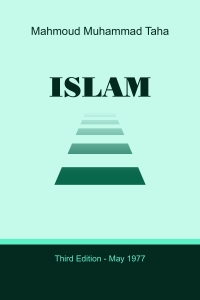What is Human Will?
The subject of spiritual experimental science is human will. But what is this human will?
Let us postpone a comprehensive answer to this question for the moment and address briefly Einstein's profound inquiry: What is this superior reasoning power, and what is the extent of its dominion?
Regarding the first question, the Qur’an informs us that this power is the very essence of God: “Do they not see what things God has created? Their shadows incline to the right and to the left, prostrating to God while they are humble.” (16: 48)
As for the second question, the Qur’an answers: “Indeed, I have placed my trust in Allah, my Lord and your Lord. There is no creature but that He holds it by its forelock. Indeed, my Lord is on a straight path.” (11: 56)
Thus, God’s dominion over all creation is absolute and comprehensive. Nothing escapes His control - neither the smallest nor the greatest of creatures, in their movements or in their stillness.
The Will to Live is Below the Will to Be Free
However, God directs inanimate objects, gases, and liquids through a direct and compelling command. Then He created life in the realms of plants and animals and guided them through the “Will to Live.” This will operates under the impulse to survive and sustain existence. Its guiding law is to seek pleasure and avoid pain.
At this stage, God’s direction of creation takes place indirectly, through the veil of the "Will to live," which appears to possess what is termed spontaneous motion, since the motives and forces of its movement are inherently embedded within it.
When God elevated life to the level of humanity, He introduced a new element alongside the "will to live": the “will to be free.” This will is superior to the "Will to live," differing in degree, not in kind.
God then directed humanity using both the "will to live" and the "will to be free," making His guidance more subtle and indirect. His intervention in human affairs is so delicate and precise that it leads us to the Great Illusion - the belief that we possess an independent free will, capable of choosing or refraining from action.
Consider this verse, a profound testament to the gentle intervention of God’s Eternal Will in shaping our created, temporal will:
“[Remember] when God showed them to you in your dream as few; and if He had shown them to you as many, you [believers] would have faltered and would have disputed in the matter, but God saved [you]. Indeed, He is Knowing of that which is within the hearts. And [remember] when He showed them to you, when you met, as few in your eyes and made you appear as few in their eyes so that God might accomplish a matter already destined. And to God are [all] matters returned.” (8: 43-44)
Observe the subtlety and precision of God’s Eternal Divine Will as it intervenes in the guidance of our created human will. His intervention is gentle, yet it decisively shapes the course of events, all while allowing us the illusion of autonomous choice.

